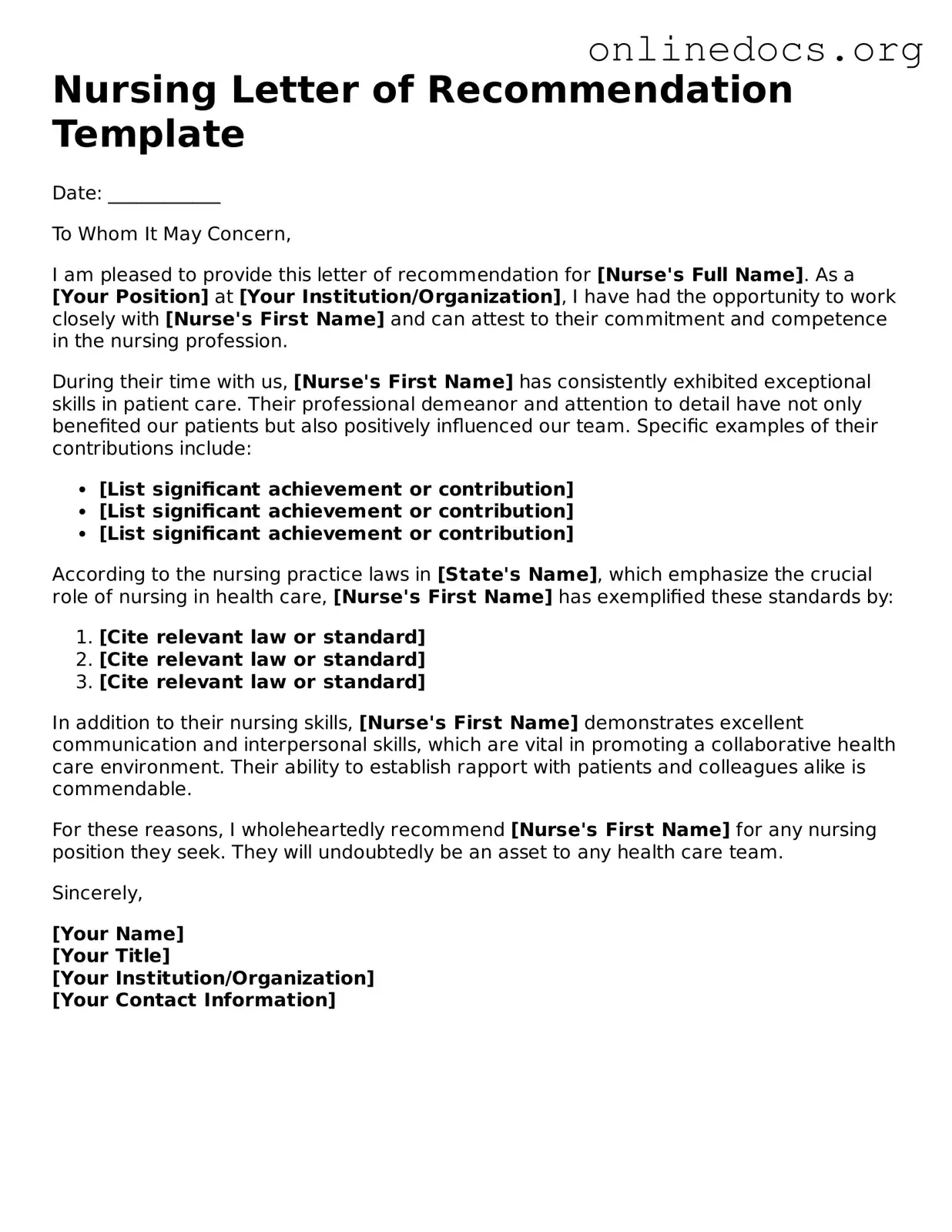The Nursing Letter of Recommendation form shares similarities with the Academic Letter of Recommendation. Both documents serve as endorsements from individuals who can speak to a person's qualifications and character. Typically, an academic recommendation is provided by a teacher or professor who can highlight a student's abilities, work ethic, and potential for success in further studies. This type of letter often focuses on the candidate's academic achievements and intellectual capabilities, much like a nursing recommendation emphasizes clinical skills and compassion in patient care.
Another document that resembles the Nursing Letter of Recommendation is the Employment Reference Letter. This letter is usually written by a previous employer or supervisor. It attests to an individual's work performance, skills, and professionalism in a job setting. Just as the nursing recommendation highlights a candidate's ability to provide care and work within a healthcare team, an employment reference emphasizes reliability and competence in a work environment.
The Character Reference Letter is also similar to the Nursing Letter of Recommendation. This type of letter is written by someone who knows the individual well, such as a friend or community leader. It focuses on personal qualities, integrity, and moral character. Like the nursing recommendation, it aims to provide insight into the candidate's suitability for a specific role, particularly in terms of empathy and interpersonal skills.
The Professional Recommendation Letter is another document that aligns closely with the Nursing Letter of Recommendation. This letter is often written by a colleague or a mentor in the same field. It discusses the individual's professional skills, contributions to the workplace, and potential for future success. Both letters emphasize the importance of professional relationships and the impact of one's work on others.
Similar to the Nursing Letter of Recommendation is the Graduate School Recommendation Letter. This document is typically required for admission to advanced degree programs. It is written by professors or professionals who can speak to the applicant's readiness for graduate-level work. Both types of letters evaluate the candidate's skills and experiences, stressing their ability to succeed in rigorous environments.
In addition to the various recommendation letters, a supportive document that can greatly impact a woman's application is a personalized Sorority Recommendation Letter that highlights her unique strengths and contributions. For more details, visit this essential guide to writing a Sorority Recommendation Letter.
Finally, the Volunteer Reference Letter shares characteristics with the Nursing Letter of Recommendation. This letter is written by someone who has supervised or worked alongside a volunteer. It highlights the volunteer's commitment, skills, and contributions to the community. Like the nursing recommendation, it emphasizes dedication to helping others and the ability to work effectively in a team setting.
